Have you ever found yourself in a situation where sensitive information needed to be shared but you were worried about confidentiality? A Non-Disclosure Agreement (NDA) can be a lifesaver in these scenarios, creating a legal framework that protects your valuable data. It outlines the expectations for privacy and ensures that both parties in a business relationship are on the same page. If you're curious about how to draft an effective NDA or the key components to include, read on to discover more!
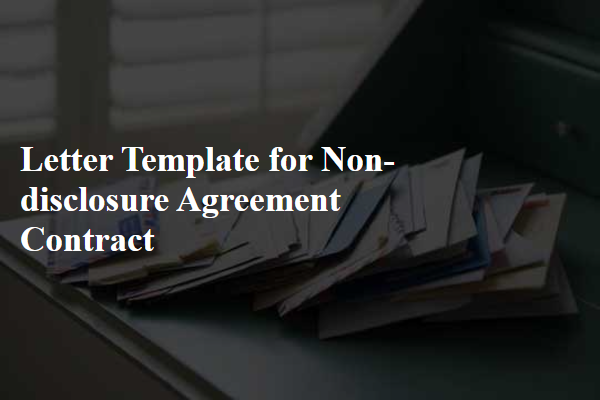
Confidentiality Obligations
Confidentiality obligations within a non-disclosure agreement (NDA) require both parties to maintain the privacy of sensitive information, such as trade secrets and proprietary data. The agreement usually emphasizes limitations on sharing confidential materials, with specific time frames, often ranging from two to five years, during which the information must be safeguarded. Violation of these obligations can lead to legal repercussions, including potential lawsuits and financial penalties. NDAs commonly outline the definition of confidential information, which may include documents, business strategies, and financial records. Effective confidentiality measures may involve secure storage methods and restrictions on access to designated personnel only, ensuring protection against unauthorized disclosure.
Scope of Confidential Information
Confidential Information encompasses a wide range of sensitive data, including proprietary business strategies, innovative technological processes, client databases, marketing plans, financial records, and trade secrets. This information, which may relate to projects like Product X's development or market analysis for Service Y, is crucial for maintaining a competitive advantage in the industry. The parties involved, which may include individuals, organizations, or affiliates, are required to handle this information with the utmost care and discretion. Unauthorized disclosure or use of such information could lead to significant financial losses or legal repercussions, emphasizing the importance of clearly defining the scope of Confidential Information to protect all parties' interests.
Duration of Agreement
Non-disclosure agreements (NDAs) often specify the duration of the agreement, a critical aspect ensuring the protection of confidential information. Typically, the duration can range from a few months to several years, depending upon the nature of information involved and the industry context. For instance, in technology sectors, agreements may last five years post-disclosure to safeguard trade secrets like proprietary algorithms or innovative software designs. On the other hand, sensitive corporate data might necessitate an indefinite duration until the information becomes public. Both parties must clearly define this timeframe in the NDA, including any conditions under which the duration may be extended or modified, ensuring mutual understanding and legal protection against unauthorized disclosure during the specified period.
Permitted Disclosures
Permitted disclosures in a non-disclosure agreement (NDA) outline specific situations where confidential information may be shared without breaching the agreement. These disclosures typically include legal requirements, such as compliance with court orders, subpoenas, or investigative demands from governmental entities. Disclosure to affiliated entities, such as subsidiaries or partners, may also be authorized, provided those parties are bound to confidentiality obligations. Additionally, sharing information with employees or contractors who require access for legitimate business purposes can be permitted, under conditions that they uphold confidentiality. Each scenario emphasizes the importance of maintaining a balance between necessary information sharing and safeguarding sensitive data.
Consequences of Breach
Breach of a non-disclosure agreement (NDA) can lead to significant consequences for the offending party. Legal repercussions may include financial penalties, typically measured in terms of damages suffered by the non-breaching party, which could amount to thousands or even millions of dollars depending on the extent of the breach. Enforcement actions may involve a court's issuance of injunctions to prevent further unauthorized disclosures, particularly in industries like technology or pharmaceuticals where proprietary information is critical. Additionally, reputational damage can impact future business opportunities, as trust is essential in maintaining partner relationships. In highly competitive markets, a breached NDA can lead to loss of competitive advantage, as sensitive information might be leaked to rivals, resulting in diminished market share. Moreover, psychological consequences such as loss of morale among employees could arise from the breach, indicating a failure in safeguarding company secrets.
Letter Template For Non-Disclosure Agreement Contract Samples
Letter template of Non-Disclosure Agreement for Intellectual Property Protection
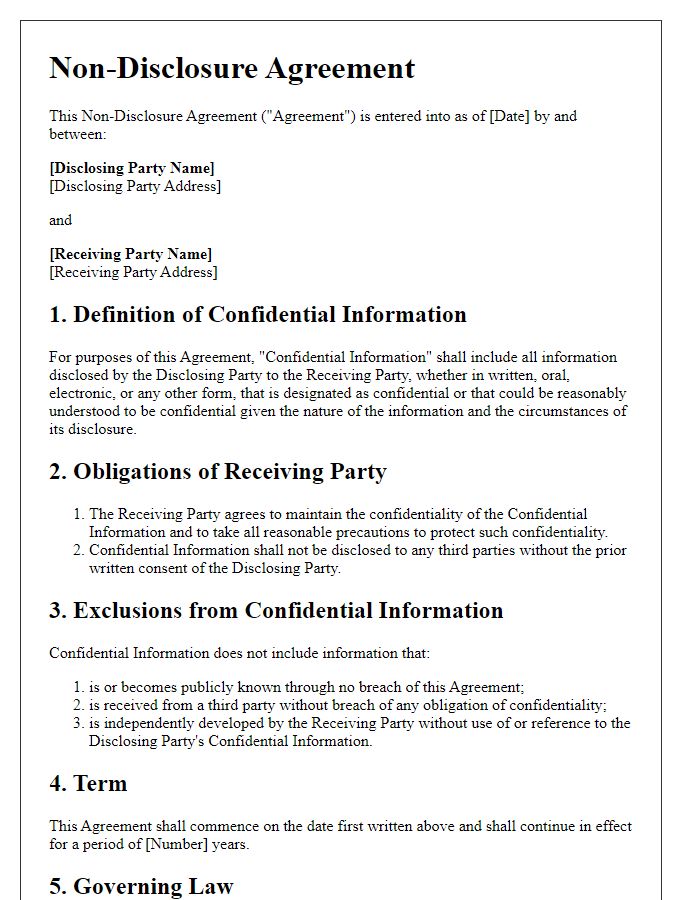

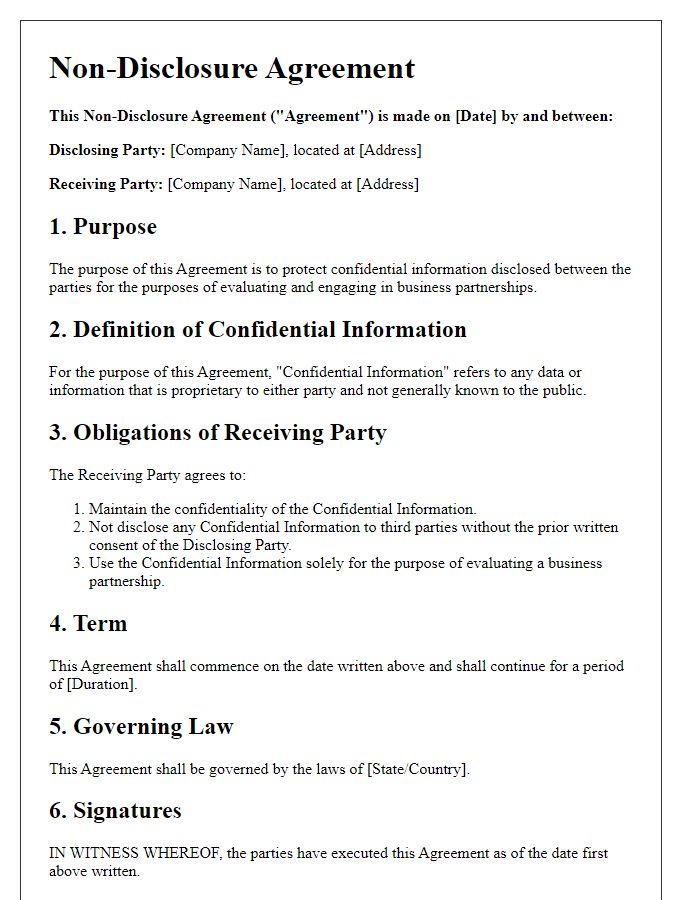
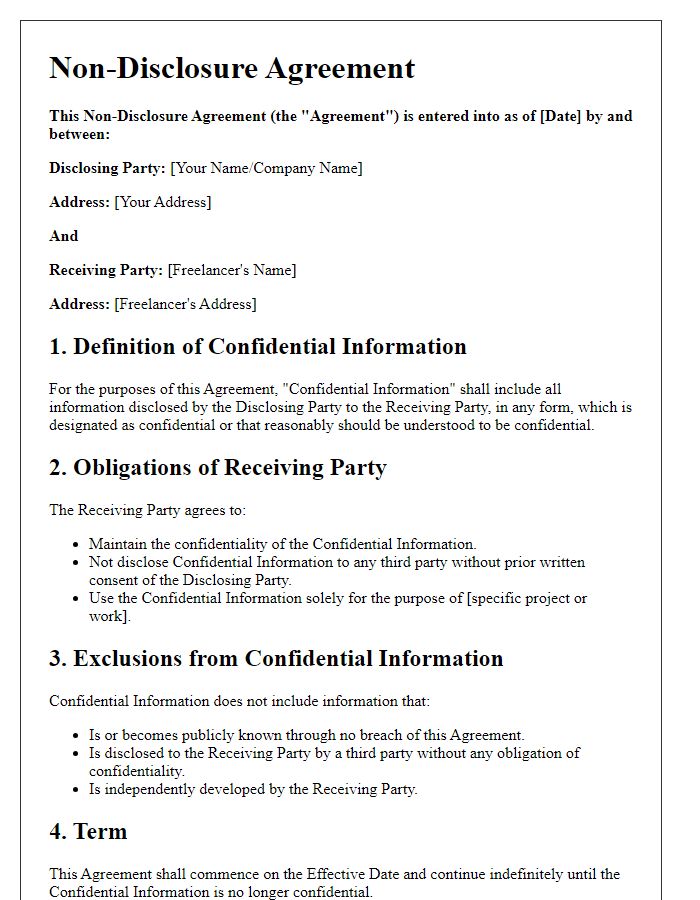
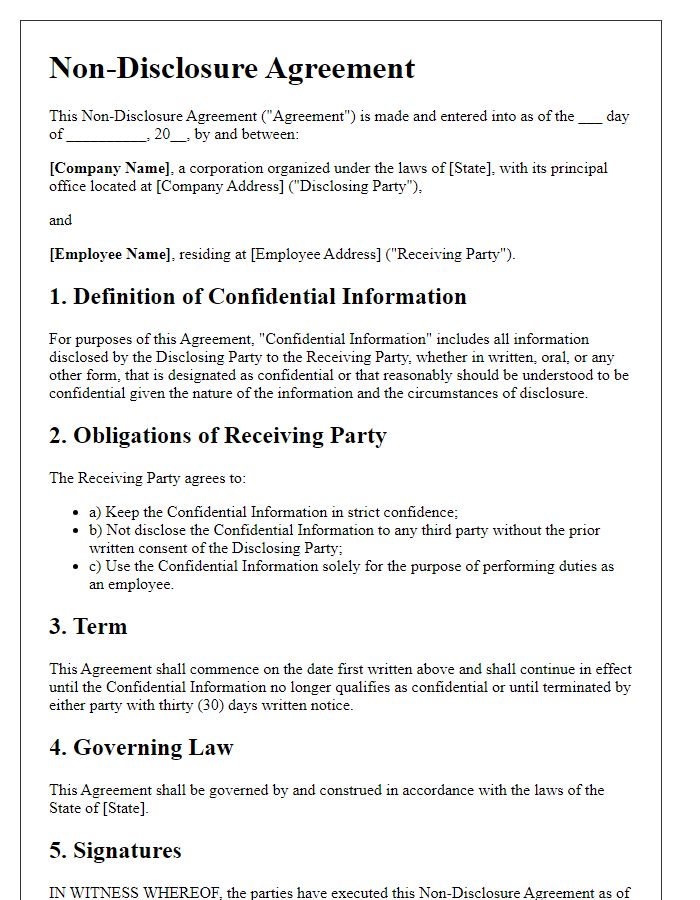
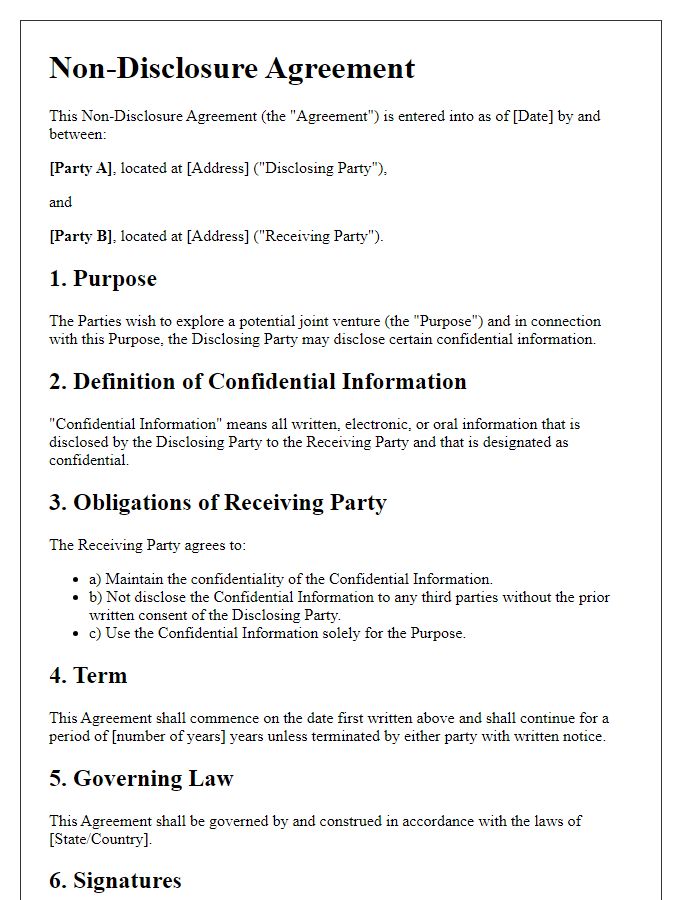
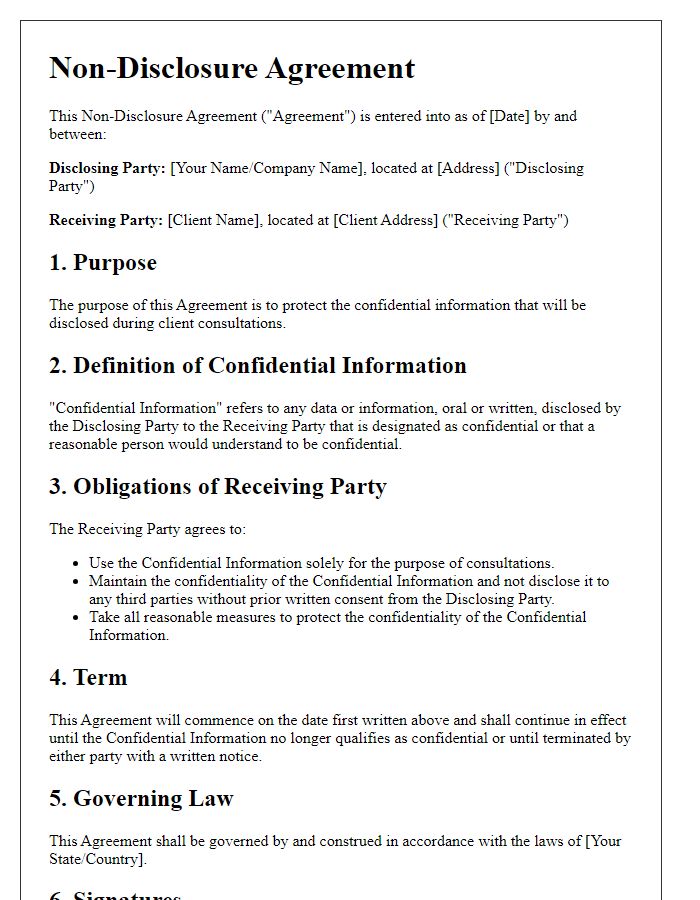
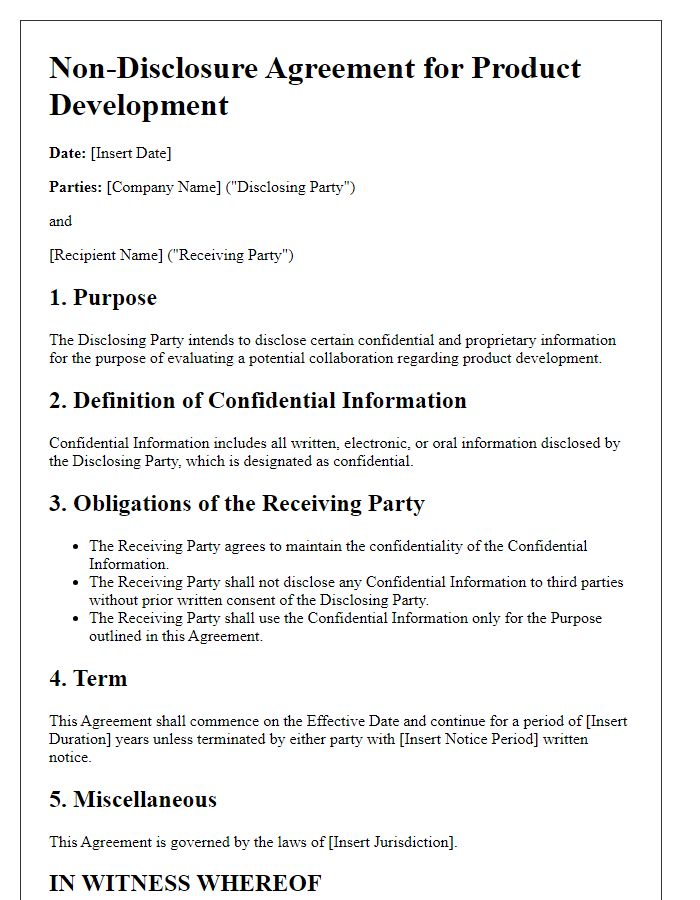
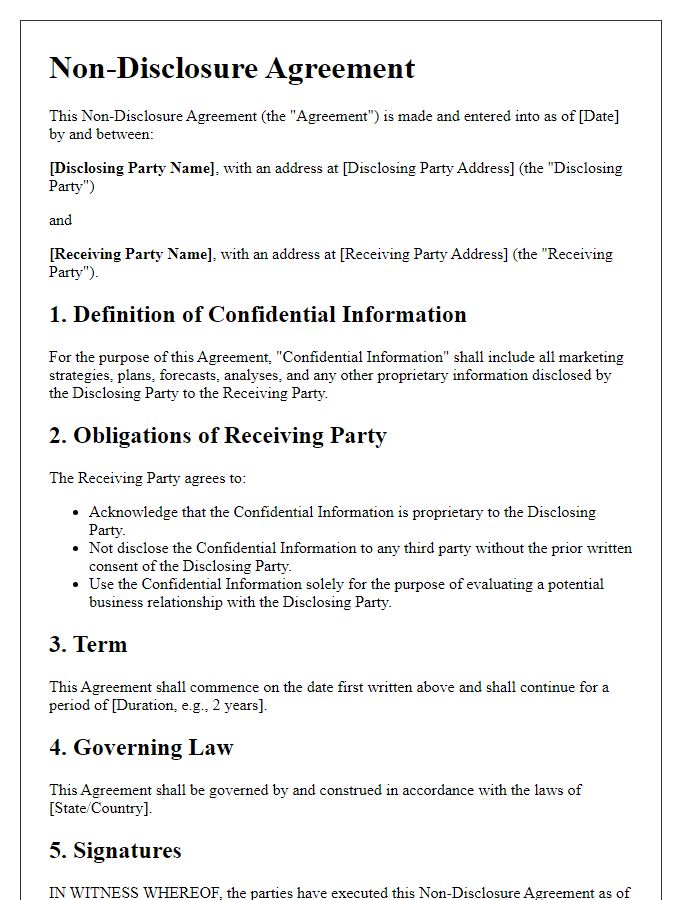
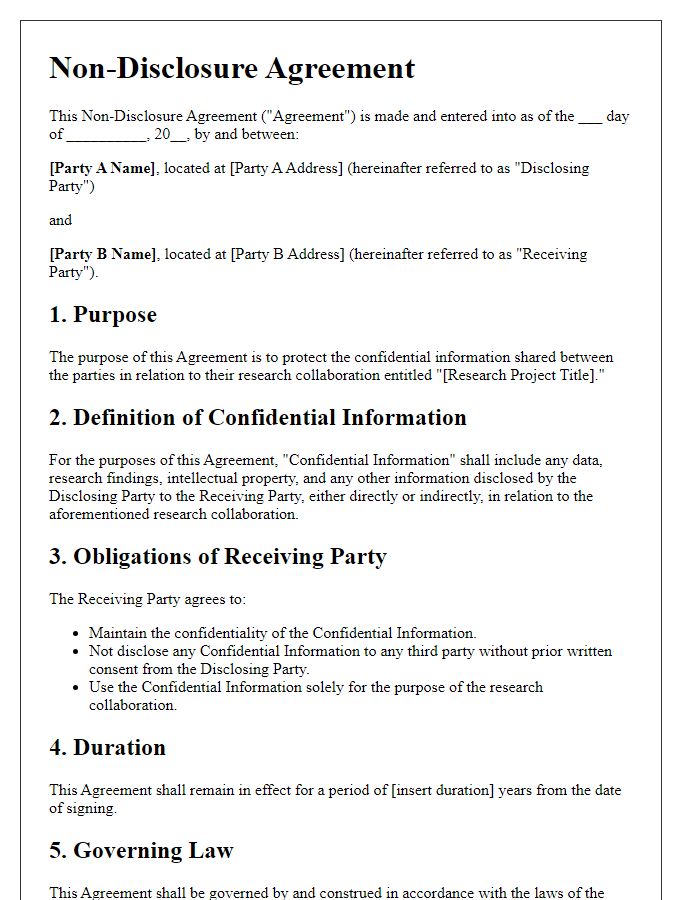
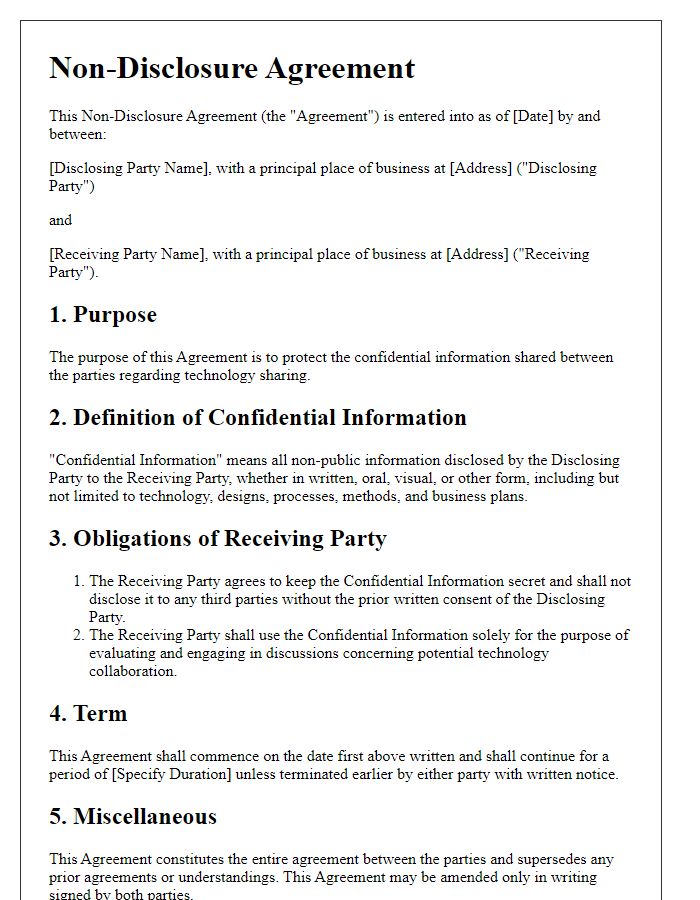


Comments